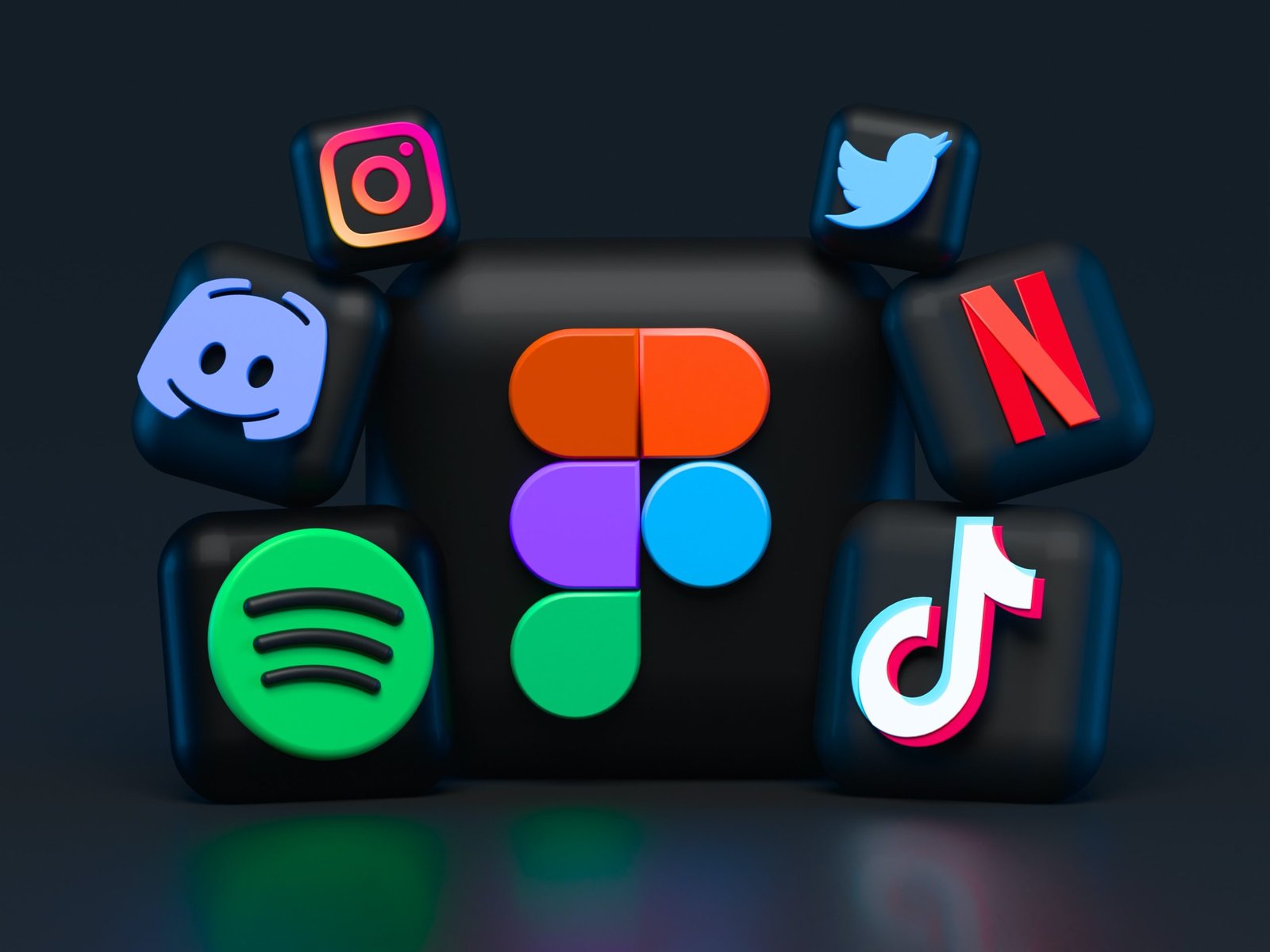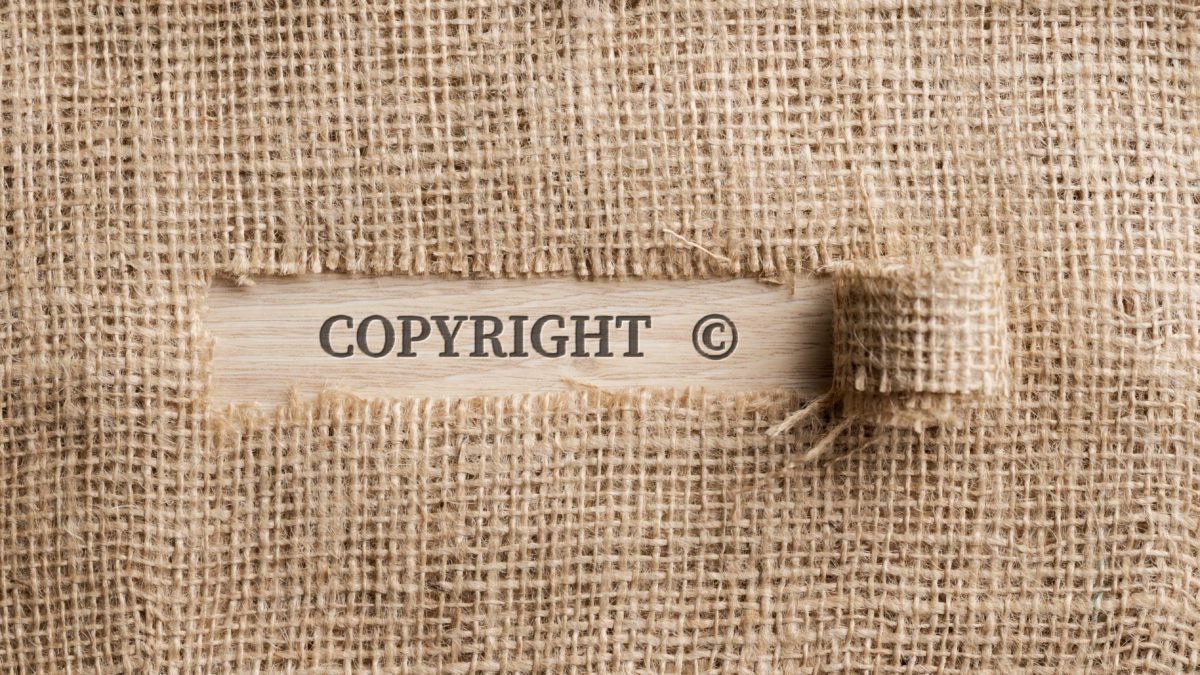
Personal Loans: The Complete Guide
December 8, 2019
The Omnichannel Approach to Marketing
December 8, 2019Copyright can be defined as a collection of rights given to you by law to protect your original work.
To be eligible for copyright protection, your work must have a fixed tangible form. Therefore, intangible works such as ideas, concepts, facts, systems and etc are not covered by copyright law.
How internet affects copyright
We live in a technology-driven world. With the emergence of social networks, blogs, podcasts and streaming sites, we got used to accessing, reading, streaming, downloading or sharing content without requesting permission from anyone.
For instance, have you ever considered the legality of your actions when you tried to download or share a YouTube video? I doubt it.
That’s because we are accustomed to performing such actions without having to seek exclusive permissions from the creator of the work.
Just because something exists in the web, it doesn’t mean that you have the legal right to access or share it. Since no one else is following the law, you may be tempted to do the same but keep in mind that it will only take one lawsuit to ruin your entire life.
Therefore, it’s important that you know everything about copyright and how it works, regardless of you being a business owner or not.
Works that are protected by copyright
- Literary works such as poetry, fiction, nonfiction, games, databases, computer software and etc.
- Musical works such as sheet music, playing music, sound recordings, lyrics and etc.
- Dramatic works such as plays, screenplays, scripts, choreography, pantomimes, film scenarios and etc.
- Artistic works such as paintings, drawings, illustrations, photographs, maps, charts, sculptures and etc.
- Motion picture works such as videos, animations, TV shows, commercials, documentaries and etc.
- And architectural works such as building-related plans and drawings, actual buildings and etc.
Yes, the categories as pretty broad but then again, they exist just for the sake of registering your work.
Works that are not protected by copyright
Works that don’t have a fixed tangible form are not protected by copyright. This includes ideas, concepts, facts, discoveries, systems, methods and etc. Even a speech or lyric can’t be copyrighted unless it’s written down on a piece of paper.
And unlike a trademark, a copyright doesn’t protect the name, logo, slogan or any other visual elements of a business. For more information, refer to circular 33.
Rights of a copyright owner
Copyright laws exist to protect the time, money and effort the creator spent on his or her work by giving them exclusive rights to;
- Reproduce the work
- Produce derivatives of the work
- Distribute copies of the work via any channel by lease, sale or other methods
- Perform work publicly
- Display work publicly
In addition, copyright owners are able to authorize other people to use the above rights on their behalf. If they wish, they are able to transfer all or parts of rights to someone else as well.
Transferring copyright ownership
Authors or creators have the ability to transfer all or parts of their rights to someone else either temporarily or permanently.
In case the copyright office doesn’t have the necessary forms for such a transfer, you may need to hire an attorney and create a written legal agreement. To finalize the transaction, the current owner of the rights should sign the agreement.
Such actions are not necessary when sharing the rights but in the case of transferring the rights on an exclusive basis, having a legal record of the transaction may be a good idea.
Although not legally required, you may want to submit a copy of the agreement to the copyright office’s office of public records and repositories for several reasons.
How to register a copyright
Most people think you have to register the work in order to receive copyright protection but that’s not how it works.
Copyright protection is automatically available on any original work that has a fixed tangible form. However, there are several steps that you can take to further enhance that protection, and registering your work is one of them.
The registration application consists of three elements; the form itself, a nonrefundable filing fee and a nonreturnable deposit. By deposit, I’m referring to a copy of your work.
The application can be filed by either a person who has exclusive ownership to a single right, a person who has exclusive ownership to all rights or a person who works on behalf of the owner or author.
Do a copyright search before moving on with the registration process to make sure no one else has copyrighted a work similar to yours. If no results came up, congrats!
All you have to do now is submit the application. I recommend submitting it online since it’s cheaper, has a faster processing time and you will be able to track the status of your request in real-time.
You can register copyright for your work even if it’s not published yet. Don’t worry, you won’t have to re-register after the work is published.
Benefits of registration
- Creates a public record of the copyright claim.
- Allows the creator to file an infringement suit against someone.
- Once registered, the U.S. Customs and Border Protection will prevent infringed copies of your work from exporting the country.
- If registration is done within three months after publishing the work or any time before an infringement takes place, you will be able to recover the costs you incur during a lawsuit such as attorney fees, statutory damages and etc.
Copyright notice
Although a copyright notice has not been required since the year 1989, it still bears several benefits.
- It shows the public that the work is copyrighted.
- It shows the public who the creator of the work is and in which year the work was first published. This boosts both the validity and credibility of your work.
- Prevents someone from claiming that the infringement was a mistake or accident since there was no copyright notice in the work.
- Ease of use. No need to register your work or seek permission.
An example of a copyright notice would be Copyright © 2024 ™ Inbound Hype (Pvt) Ltd. As you can see, there are four elements; the word “Copyright”, the symbol ©, the year of publication, and the name of the author or creator.
Duration of a copyright
In general, copyright will last the entire lifetime of the creator plus seventy more years. If a work has multiple authors, copyright will last for seventy years after the last surviving creator’s death.
However, copyright for anonymous and made for hire works lasts 95 years from the date of publication and 125 years from the date of creation.
Work made for hire
This concept is very important, especially if you are creating or planning to create a original work yourself.
If you are an employee of a company and you create a work during the course of your employment, it will be considered a work made for hire regardless of whether you made it for the company or yourself.
Here, the company will be considered the copyright owner and not the actual creator himself.
Ask yourself the following questions to check whether or not you are creating a work made for hire.
- What skills and knowledge are required to create the work? Did you gain them through your job?
- Did you use space, materials and equipment provided by the company to create your work?
- Does the job contract specify that you are not permitted to undertake any other projects during the course of employment?
- Did the employer give you special benefits? Did the employer remove taxes from your pay?
- Did you create the work during regular working hours set by the hiring party? If so, what percentage of the work was created as such?
If any of the questions answer “yes” then you are creating a work made for hire and I suggest you start over. Refer to circular 30 for more information.
Copyright exceptions
If all works have absolute protection, around 80% of the content in the internet will have to be deleted. That would suck.
Not only that, students and teachers wont be able to access any information on a research that’s made since they are “protected”.
So yeah, there are some exceptions to copyright. The first one being personal research. Students are able to access, read and copy limited extracts of copyrighted works strictly for non-commercial use. The same conditions apply for teachers as well.
The other exception is fair use. It’s a concept that allows someone to use snippets of a copyrighted work without needing permission from its creator. This is why we are able to comment on, review and parody another person’s work.
If not for fair use, there won’t be any comments on YouTube videos, reviews on products or parodies of works in the internet. But don’t try to take fair use too far. Anything taken too far is not good.
Copyright renewal
Works created after January 1, 1978 are not subject to renewal.
By now, even the works that were created before 1978 are not eligible for renewal since they would have to be renewed before the end of the 28th year of copyright. Now it’s 2018 and more than 40 years have passed already.
The only exception would be if those works were eligible for automatic renewal. For this to happen, they must be registered between the dates January 1, 1964 and December 31, 1977 and the creator must have maintained the copyright throughout the original term.
To learn more about copyright renewal, refer to circular 6A.
Conclusion
Now that you have a solid understanding of what copyright is and how it works, be more careful when interacting with another person’s work.
Stay away from piracy, plagiarism and content-theft if you don’t want to get sued and remain broke for the rest of your life.
Don’t take the internet lightly and put yourself at unnecessary risks. Despite the freedom it gives you, it’s a dangerous place where your activity is constantly monitored.
I recommend doing a plagiarism check even before you post something on Facebook. You can never be too careful, right?
On the other side of the coin, copyright can be a wonderful thing for authors and creators. It makes sure that they get the credits they deserve and get paid for their work.
Anything else that you may want to know about copyright? Let me know in the comments section below.





